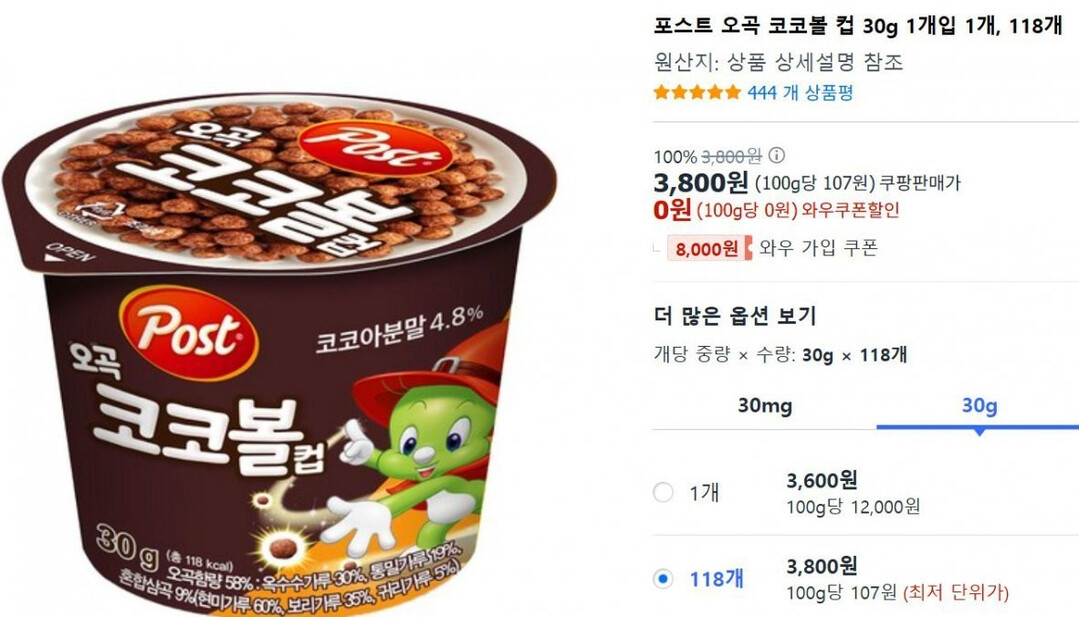
Seoul, South Korea – Coupang, a prominent e-commerce giant in South Korea, is once again embroiled in controversy following a series of significant pricing errors that have led to massive order surges and subsequent cancellations. The latest incident, dubbed the "Cocoa Puffs Crisis," saw 118 units of Post Five-Grain Cocoa Puffs Cups, normally priced at 3,600 won each, mistakenly listed for a mere 3,800 won in total – a staggering individual price of approximately 32 won.
The error, which occurred from late evening on June 30 to the early hours of July 1, persisted for about five hours, leading to an estimated 30,000 to 40,000 orders. The seller, operating on Coupang's open market platform, promptly stated that the incorrect quantity display was due to a Coupang system error and that they could not fulfill the orders at the erroneous price. Citing potential penalties from Coupang for seller-initiated cancellations, the seller urged customers to cancel their own orders, leading to significant confusion and customer dissatisfaction. Coupang later intervened, sending out cancellation notices to affected customers on the evening of July 1, apologizing for the inconvenience caused by the misposted quantity.
This "Cocoa Puffs" blunder follows closely on the heels of a similar event in May, when Nongshim's Yukgaejang Cup Noodles were severely underpriced. On May 21, a 36-pack of the popular instant noodles, typically retailing for 27,000-28,000 won, was listed for just 5,040 won (approximately 140 won per cup) due to an internal pricing input error. This error, lasting only about 10 minutes, still generated tens of thousands of orders. In that instance, as it was a "Rocket Delivery" product directly managed by Coupang with assured inventory, the company honored the mistaken price and proceeded with deliveries, reportedly incurring losses estimated at several hundred million won. For areas where stock ran out, Coupang offered 5,000 won in Coupang Cash as compensation.
The differing responses to these incidents—Coupang absorbing losses for direct-sourced items versus third-party sellers facing cancellations—have highlighted a contentious issue regarding responsibility and consumer protection in e-commerce pricing errors. While Korean civil law generally allows sellers to cancel contracts made under significant error, provided it wasn't due to gross negligence, the recurring nature of these glitches on Coupang's platform is raising concerns among consumers and industry observers alike about system stability and transparent sales practices. These incidents underscore the challenges e-commerce platforms face in maintaining pricing integrity amidst rapid transaction volumes and complex seller ecosystems.
[Copyright (c) Global Economic Times. All Rights Reserved.]




























